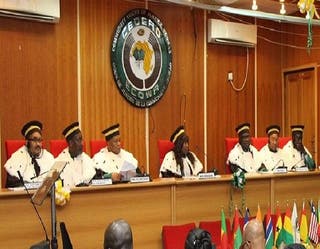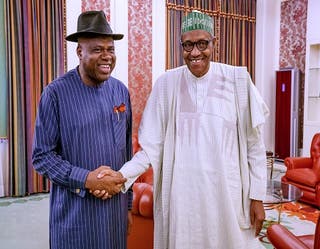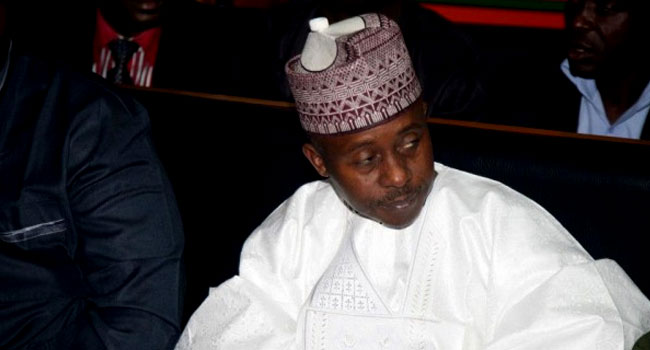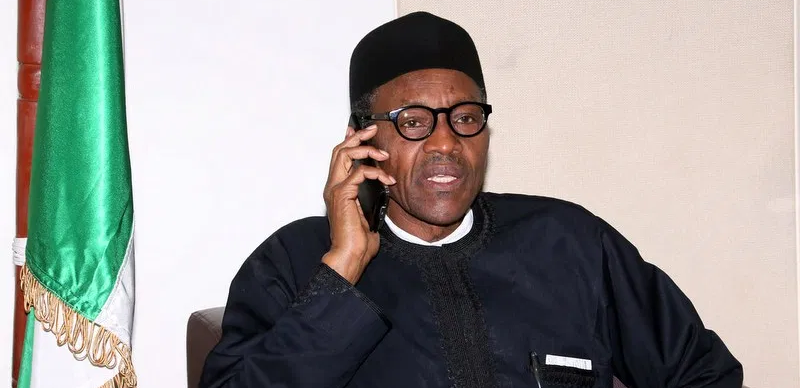The President of the Nigeria Union of Journalists, Christopher Isiguzo, on Monday reiterated the position of stakeholders in the media towards the National Press Council (Amendment) Bill currently before the National Assembly. He said a stakeholders’ meeting was important to settle the grey areas. He added that any regulation that tended towards the control of the media by the government would be resisted. Isiguzo spoke while featuring on Sunrise Daily, a programme on Channels Television, monitored by one of our correspondents. He said, “From the NUJ’s perspective, we did not really object to that public hearing; but from the Nigeria Press Organisation’s perspectives, made up of the Newspapers Proprietors of Nigeria, the Nigeria Guild of Editors and the Nigeria Union of Journalists, we are opposed to the planned amendment. We told the National Assembly that the matter was of contention in court and it would be sub-judice to discuss. “I do not think anybody is allergic here if you look at the issue in court, we said ‘allow the practitioners and stakeholders to regulate themselves.’ “In Ghana, the person heading the press council is a journalist. So, when you allow us to regulate ourselves, it is a lot easier. If you look at the proposed amendment bill, you will see that they want to criminalise a journalist. “For instance, if a journalist breaches the ethical code, you want him to go to prison; we said no. There are ways that we can sanction the persons as practitioners. “We can suspend the person and we can also get the NUJ to strike out the membership of such an individual instead of sending the journalist to jail. These are the grey areas we feel should be struck out in the amendment.” Meanwhile, the Chief Executive Officer of Media Career Development Service, Lekan Otufodunrin, said the amendment bill and the Decree 4, enacted by the President, Major General Muhammadu Buhari (retd.), in 1984 during his regime as military Head of State, are the same. During an interview on Monday with one of our correspondents, Otufodunrin said the two pieces of legislation were meant to stifle the press in Nigeria. Otufodunrin said, “Decree 4 was during the military regime and even then, it was heavily criticised by journalists and this led to the imprisonment of some prominent journalists. “The interesting thing then was that when Buhari came in, he said he was going to tamper with press freedom and he did. This Press Bill, as well as the NBC Bill are just indications that this government seems determined to stifle the press freedom we have. “It is quite unfortunate that this is coming under a democratic system of government. They can amend law because the laws have been in place for years and it is believed that events must have overtaken them, but what they are proposing is totally different. “This is an attempt to stifle press freedom and it is a deliberate act to control and monitor the activities of the media. “Most people would not have been aware because they planned to do it in a quiet way. They came for Twitter when nobody expected it but we are hopeful that members of the House of Representatives will listen to the voices of reason from the media stakeholders.” Otufodunrin also said it was shocking that the Minister of Information and Culture, Lai Mohammed, who is a lawyer, could support the move. “The Minister of Information used to be the Publicity Secretary for the All Progressives Congress and we saw how he used the media and social media to counter the Peoples Democratic Party and bring his principal to power. “For someone who is also a lawyer and knows about the importance of the press, it is quite shocking even in his office as the Minister of Information,” he said. Also, the Editor, Premium times, Idris Akinbajo, said media practitioners should not be deterred. He said, “Nigeria is slipping down the ladder when it comes to the freedom of press. “With this direction, it is same with the Decree 4. The media should not allow themselves to be cowed into submission and they should ensure they report objectively and courageously.” TheEditor of The Cable, Kolapo Olapoju, said the bill should not be allowed to scale through because it was against the democratic system of government. He said, “The law will gag the media. It is not in the best interest of democracy and that of the media to have such a law in place. It is going to suppress freedom of speech to a large extent. Such law would put the media at the mercy of the government.” Also, a media practitioner, Amb. Yemi Farounmbi said, “The NPC amendment bill would definitely stifle dissemination of information in the country which is guaranteed in Section 22 of the 1999 constitution. “The Ministry of Information and Culture has not comported itself well and it should have a rethink. “Decree 2 and 4 stifled information. Decree 4 particularly stifled information that was factual. What mattered was that it must not be brought to the notice of the public. Decree 4 dealt only with the print media that time because of its role but with technology it would be extended to other outlets.” Source: PUNCH.














